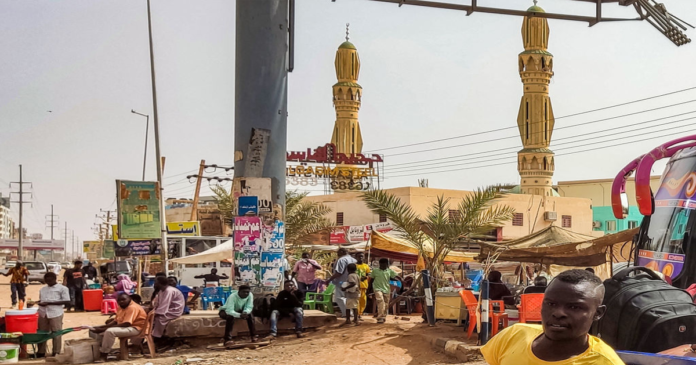After leaving the peace negotiations in the Saudi city of Jeddah on Wednesday, the army attacked the paramilitary Rapid Support Forces (RSF) barracks, accusing its adversary of violating the aid-bringing ceasefire.
US ready to resume Sudan once parties: According to the US, “serious violations of the ceasefire by both sides” had occurred.
The United States and the Kingdom of Saudi Arabia expressed their readiness to resume facilitating the discussions that have been put on hold in order to find a negotiated settlement to this conflict. They stated that the resumption of discussions would be contingent upon the forces demonstrating their seriousness about abiding by the ceasefire through their actions.
The facilitator of the negotiations expressed serious doubts about whether the parties involved are prepared to fulfill the commitments they have made on behalf of the Sudanese people. The facilitator cited the violations as the reason for these doubts.
Wednesday saw important RSF bases under the direction of commander Mohamed Hamdan Daglo targeted by forces loyal to army chief Abdel Fattah al-Burhan in both north and south Khartoum, residents said AFP.
On the 47th day of a conflict that, according to analysts, has already cost 1,800 lives, a witness reported “heavy artillery fire from army camps” in the northern part of the capital.
Another claim was that there had been “artillery blasts on the RSF camp in Al-Salha” in southern Khartoum, which is home to the city’s biggest paramilitary base and arsenal.
The attacks took place two days after American and Saudi mediators announced that the warring sides had agreed to extend the initial week-long humanitarian ceasefire by five days.
Although they have recognised several violations, the Jeddah-based mediators have refrained from taking any action.
“Fight until you win”
Under the condition of anonymity, a Sudanese government official said that the army withdrew “because the rebels have never implemented a single one of the provisions of a short-term ceasefire which required their withdrawal from hospitals and residential buildings”.
According to the mediators, despite inadequate observance of the truce, the extension would allow for further humanitarian efforts.
Fighting has broken out this week in western Darfur and greater Khartoum despite repeated promises from both sides.
During a visit to the troops in the capital, Burhan stated, “The army is prepared to fight until victory.”
The RSF declared that they would “exercise their right to defend themselves” and charged the army with breaking the cease-fire.
The postponement of the negotiations should “not discourage” mediation attempts, according to African Union spokesman Mohamed El Hacen Lebatt, who spoke to AFP.
Following Burhan’s call for the firing of Volker Perthes as the UN’s representative to Sudan, Antonio Guterres, on Wednesday, reiterated his support for Perthes.
“It is up to the Security Council to determine whether it supports the continuation of the mission for another period or whether it decides that it is time to end it,” he said.
He declared, following a meeting with the East African group IGAD and other representatives, that they would propose extensive negotiations involving all Sudanese as soon as feasible.
According to the Armed Conflict Location and Event Data Project, since fighting started on April 15, more than 1,800 people have died.
According to the UN, other countries have witnessed the immigration of approximately 425,000 individuals, while 1.2 million people have experienced internal displacement.
“Leave at all costs”
Yaqout Abderrahim fled Khartoum for Port Sudan, where she has been waiting for a flight out for 15 days in hopes of securing a rare seat.
She informed AFP that among the families camping out on the ground, their desire is to leave at any cost due to the destruction of their houses and the lack of means to raise their children.
According to the UN, 25 million people, or more than half the population, are currently in need of assistance and safety.
Three-quarters of hospitals in battle zones are inoperable, and entire areas of Khartoum no longer have access to running water or power.
On Wednesday, the health ministry reported that “nine health facilities” in Jazira state, located just south of Khartoum, have become inoperable “despite the declared truce.”
The “presence of RSF militias threatening the movement of medical staff and supplies” was to blame, it said.
In Darfur, on Sudan’s western border with Chad, hundreds of people have died as a result of ongoing fighting that “blatantly disregards ceasefire commitments,” according to Toby Harward of the UN refugee agency.
According to experts, Burhan is under increasing pressure from his own Islamist backers and the survivors of the Bashir administration, with whom he had formed a mutually beneficial alliance in order to seize power.

